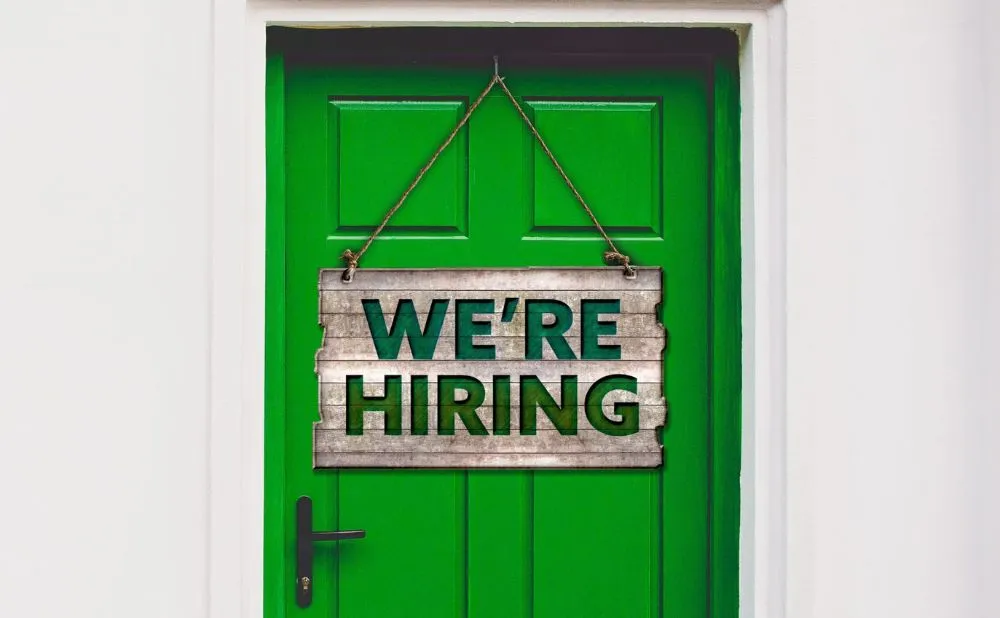As businesses across the globe recognise the urgency of integrating sustainability into their operations, the role of a Sustainability Manager has gained prominence. However, many companies find themselves in uncharted territory when it comes to defining this role. They may not fully understand what a Sustainability Manager can bring to the table, leading to uncertainty in creating a meaningful job description. In this blog post, we’ll guide you through the critical first steps in defining the role of a Sustainability Manager, starting with your team’s clarity of vision.
The Evolving Landscape of Sustainability Roles:
In a rapidly changing world, sustainability isn’t merely a buzzword – it’s becoming a fundamental aspect of every business. Companies are realising that in the not-so-distant future, virtually every job will have a sustainability component. To adapt to this new reality, many are starting by appointing Sustainability Managers who are tasked with overseeing strategies and driving sustainability efforts.
Start with a Clear Vision:
Before delving into crafting a job description, it’s imperative to establish a clear vision of what the Sustainability Manager’s role should entail. This vision is greatly influenced by where your company stands in its sustainability journey. Consider these key decision points:
- Current State of Sustainability: Assess your organisation’s existing sustainability efforts. Are you just beginning, making gradual progress, or well-advanced in your sustainability journey?
- Business Goals and Objectives: Determine how sustainability aligns with your company’s overarching goals. What outcomes do you aim to achieve through sustainability initiatives?
- Industry and Regulatory Landscape: Consider the specific challenges and opportunities presented by your industry and the regulatory environment in which you operate.
- Resource Allocation: Define the resources, budget, and personnel you’re willing to commit to sustainability efforts.
Utilise Internal Champions:
One key realisation in today’s business landscape is that every role is becoming intertwined with sustainability. It’s not just the Sustainability Manager’s responsibility; it’s everyone’s. This shift in mindset is vital. Existing employees can become valuable sustainability champions within your organisation, leading initiatives and promoting sustainable practices within their own areas of expertise.
With guidance from an external sustainability consultancy, they may implement the very first steps of your sustainability strategy successfully and by doing so expand their knowledge and expertise to eventually become your first in-house Sustainability Manager.
Defining Key Criteria:
Once you’ve established a clear vision, the key criteria and qualities for your ideal Sustainability Manager will naturally emerge. These criteria should be a direct reflection of your organisation’s unique sustainability needs and aspirations.
Consider factors such as:
- Your Objectives: Clearly outline your sustainability objectives and goals. What impact do you want to achieve, and in what timeframe?
- Current Initiatives: Evaluate any existing sustainability efforts within your organisation. What has been done so far, and what needs improvement or expansion?
- Key Areas: Based on your objectives and assessment, pinpoint the critical sustainability areas that require dedicated attention. These could include energy efficiency, waste reduction, supply chain sustainability, or community engagement.
- Scope of Responsibilities: Determine the scope of the Sustainability Manager’s responsibilities. Are they primarily responsible for strategy development, implementation, or monitoring and reporting?
Defining Key Qualities:
Resulting from the role’s objectives and responsibilities, you can define the key qualities you’re looking for in a candidate. Consider factors such as:
- Expertise: Do you need someone with deep knowledge of sustainability frameworks and best practices, or would you utilise the expertise of an external consultancy and hire someone with the potential to learn and grow in the role?
- Leadership Skills: Given the collaborative nature of sustainability initiatives, strong leadership and communication skills may be vital and should not be underestimated.
- Analytical Abilities: Depending on your focus areas, you might require strong data analysis skills to track and report on sustainability metrics.
- Innovation and Adaptability: Sustainability often involves navigating uncharted waters. Look for candidates who can adapt to change and drive innovation.
Our Commitment to Your Sustainability Success:
At Worksmiths, we understand the importance of this initial phase in the hiring process. Our experienced consultants will guide you through the process of team vision, role definition and candidate selection criteria, ensuring that your Sustainability Manager becomes an essential driver of your sustainability success.
Let’s embark on this transformative journey together, creating a sustainable future for your company and the world around us.
Image by Square Frog






